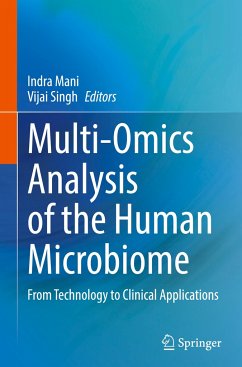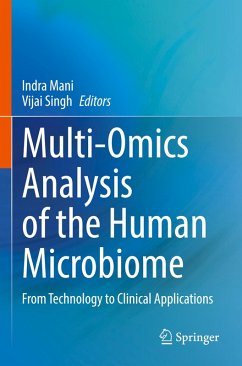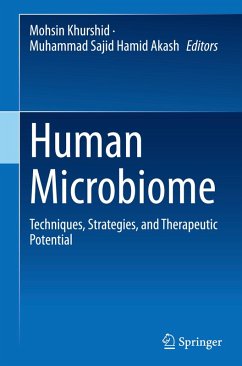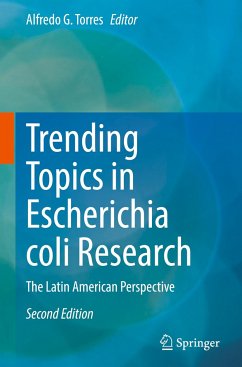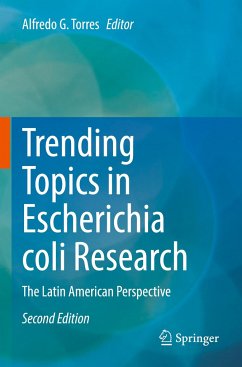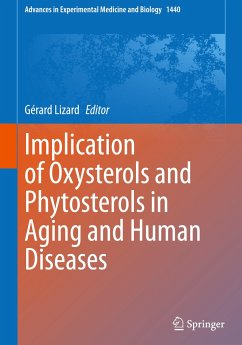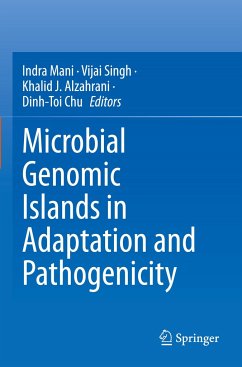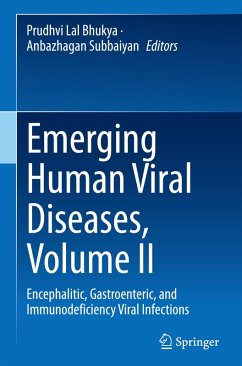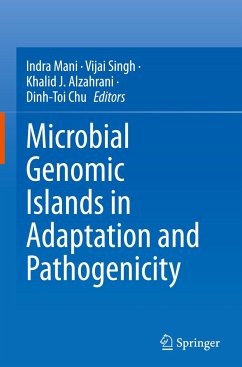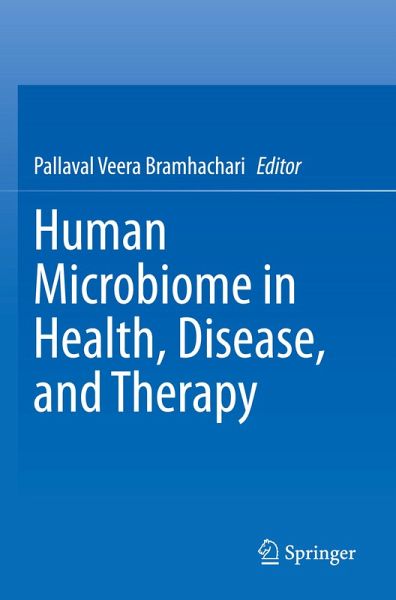
Human Microbiome in Health, Disease, and Therapy
Versandkostenfrei!
Versandfertig in 6-10 Tagen
121,99 €
inkl. MwSt.

PAYBACK Punkte
61 °P sammeln!
This book illustrates the role of the human microbiome in health and diseases. It discusses the association of an imbalanced human microbiome with different human diseases, including inflammatory, metabolic conditions, neurological, cardiovascular, and respiratory diseases. The book further reviews the association between intestinal microbiota and immune defense systems. The book provides evolving knowledge of the development, complexity, and functionality of the healthy gut microbiota and covers interventions that modulate and stabilize the gut microbiota. Further, it introduces the human mic...
This book illustrates the role of the human microbiome in health and diseases. It discusses the association of an imbalanced human microbiome with different human diseases, including inflammatory, metabolic conditions, neurological, cardiovascular, and respiratory diseases. The book further reviews the association between intestinal microbiota and immune defense systems. The book provides evolving knowledge of the development, complexity, and functionality of the healthy gut microbiota and covers interventions that modulate and stabilize the gut microbiota. Further, it introduces the human microbiome as a reservoir of AMR genes, the current knowledge on the resistome, and the recent and upcoming advances in molecular diagnostic approaches to unravel this reservoir. Toward the end, the book reviews the advances in understanding the human urinary microbiome and its potential role in urinary tract infection. The chapter also presents the dynamics of the skin microbiome and the association of microbiota with skin disorders and therapeutic interventions. This book is an invaluable read for health professionals, medical students, microbiologists, and scientific research communities who are eager to update themselves with recent trends in microbiome research.



